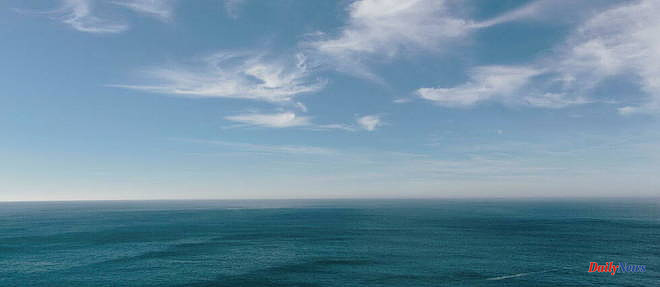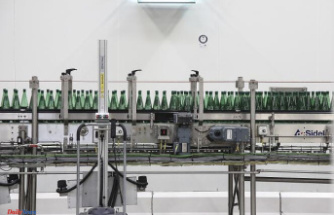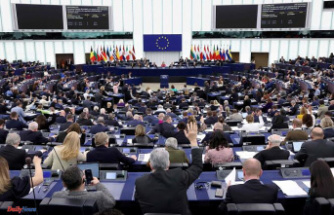The first foundation recognized as being of public utility dedicated to the ocean in France, Tara Océan has special UN observer status. Its director of international policies, André Abreu, has been following the negotiations since 2012.
He also looks back on the March 5 adoption of a "historic" agreement to protect the high seas reached after years of intense negotiations at the UN.
The Point: The International Seabed Authority, which belongs to the UN, is meeting its council for a fortnight in Kingston to try to make progress on the issue of deep-sea mining. What are the issues ?
André Abreu: The current stake in Kingston for the negotiation on the mining exploration of the seabed, the "deep sea mining", is important. A large coalition of states is calling for a suspension of operating permits for lack of a scientific framework for impact analysis. Concretely, it is a break that is requested, until science is at the level and makes it possible to define a mining code.
What are the targeted mining activities?
They currently concern polymetallic nodules [kinds of black potatoes rich in copper, nickel, cobalt and manganese, between 2,000 and 6,000 m deep, coveted for the manufacture of batteries, electric cars and wind turbines, Editor's note]. There are no ongoing projects for the exploitation of these minerals, but in June 2021 a Canadian mining company, The Metals Company, filed an application for exploitation that gives all member states two years. International Seabed Authority to agree on a mining code, i.e. a regulatory framework, before launching its activity in Nauru, Micronesia. It's this year. It is therefore urgent to find a way to interrupt this race against time.
What is the position taken by Tara Ocean and non-governmental organizations in this moratorium?
All the NGOs are very united on the subject, and are launching an ambitious campaign to demand that explorations stop "forever". Our arguments: they are not economically interesting - because these nodules are disseminated over enormous distances -, they are synonymous with environmental impact and, from an ethical and social point of view, totally against the grain of our time. In the middle of the 21st century, what's the point of trying to scrape the seabed when you know that the ocean is heavily impacted, that its biodiversity and its resources are in danger, especially for an economic activity without proven benefits?
Does this moratorium bring hope to fight against what the president of Sea Shepherd describes as the "Wild West" reigning on the high seas?
Yes, it was the Wild West indeed! But things are going in the right direction, several states have declared their wish to join the moratorium. We are optimistic, but there remain challenges related to the interface between science and operations. France, for example, which is conducting exploratory experiments in the Clarion-Clipperton area in the Pacific, would prefer to keep its permits for scientific purposes. For us, science must be authorized, but it cannot be an alibi for keeping these permits and, later, relaunching exploitation. This requires great caution.
After fifteen years of discussion, it has finally been approved, including by Russia and China! It is a text of legally binding international law, which explains the time spent, mainly on the question of the definition of marine protected areas. The most important thing is to have managed to find a consensus. It is still possible that Russia, followed by Nicaragua, withdraws on the pretext that the latest version has not been translated into Russian and Spanish, because their experts had already returned home to approve the final text.
Had this treaty become an absolute emergency?
Yes ! The high seas make up 65-70% of the oceans, and no protective laws existed, not even monitoring or impact studies. You could practice degassing or fish at will. Only a convention concerning the discharge of hazardous waste is in force, in addition to the United Nations Convention on the Law of the Sea of 1982 defining common rules but without considering biodiversity.
How has the subject of marine protected areas on the high seas required concessions from Europe, Canada and Australia?
A large group of developed countries wanted any country signatory to the treaty to be able to propose a marine protected area anywhere on the high seas, a point rejected by the large countries of the South, Russia and Japan. Eventually, all agreed on a broader definition: a country can propose it provided that the adjacent countries agree, with a management plan. Otherwise, they can choose to leave the area but are obliged to apply the conservation measures. We've tried to make the exit option as hard as possible for countries that don't want to join, but ultimately that exit option is in the text. Nevertheless, we have achieved a great victory: the vote for marine areas will be able to be done by qualified majority, not only by consensus, as is the case in Antarctica.
Isn't the fishery affected by this new treaty?
Indeed, it is not a fisheries management agreement like the one in the North Atlantic. This is a very controversial point, but rules on fishing limitations can still be established by a country proposing a marine protected area. However, it will have to demonstrate that fishing poses a threat to species in its waters. The same will apply to activities such as the laying of submarine cables that have an impact on biodiversity in the high seas.
Regarding scientific research in the high seas, which directly concerns the Tara Ocean Foundation, what did you get?
Authorizations for scientific expeditions should be simpler than those for national waters: this was fundamental because it is very expensive research and we feared an excessively laborious process. Countries have also signed up for a transparent system for sharing research data. This is a real victory because we have always campaigned for "open data". This is a subject of tension because it affects the regulation of digital (or digital) data, a key issue, for example, for Switzerland, where the International Patent Organization is based, but also for the pharmaceutical industry, whose a number of patents are derived from marine resources. We are calling for an original traceability mechanism for molecules and genetic sequences from samples taken from the high seas. With a high seas conservation label, the private sector would become a winner by playing on transparency.
What research does the Tara Ocean Foundation conduct on the high seas?
The treaty must now be ratified. What timeframe can you imagine?
There is no deadline. Europe has already put funding on the table for this ratification for the next two years. This is an encouraging sign sent to the approximately 50 member countries of the coalition for high ambition on the high seas created in 2022. Hopefully at the Nice Ocean Conference in 2025 we can announce its entry into force. It would be a great victory.












